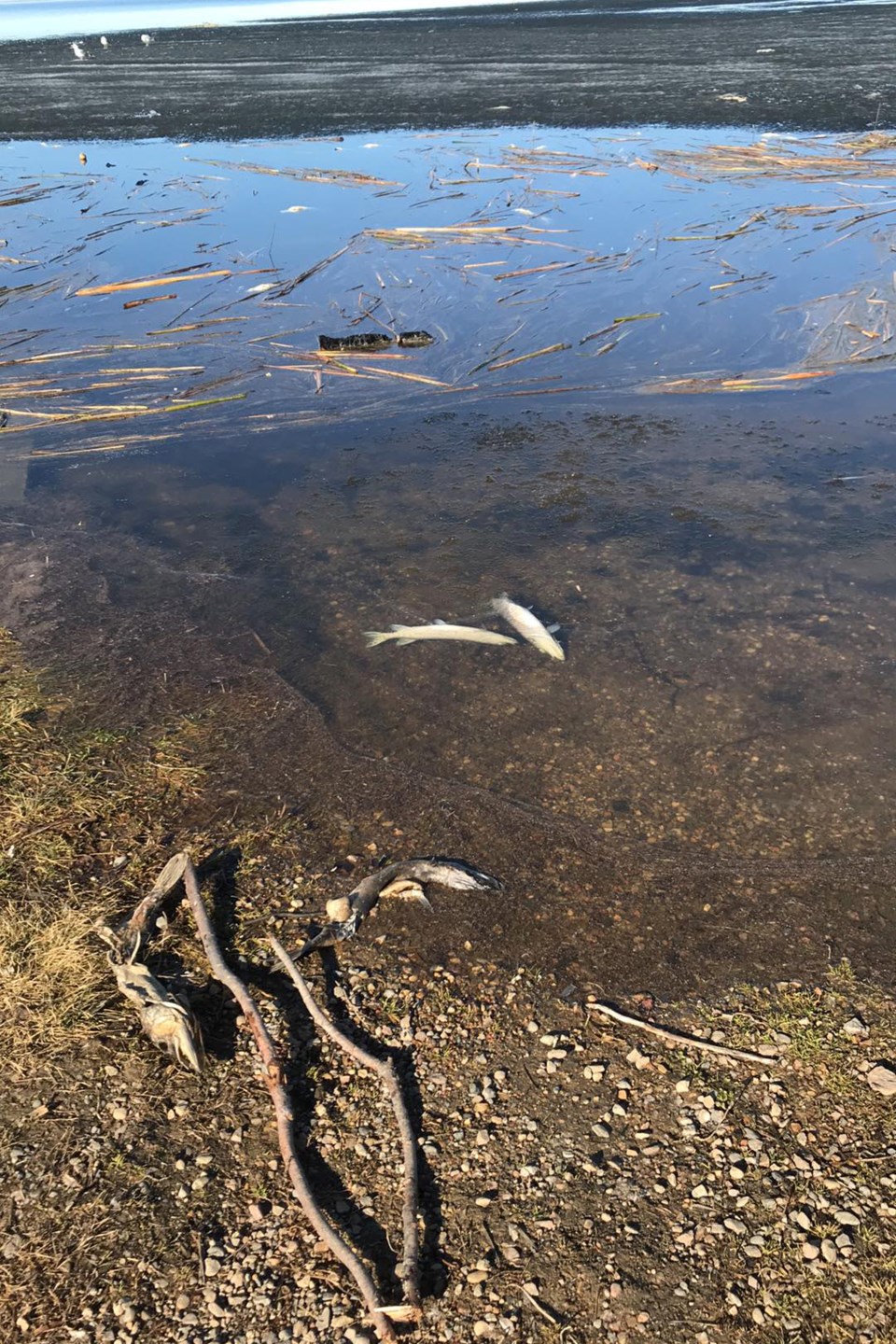ST. PAUL - Alberta Environment and Parks has confirmed a winter fish kill occurred recently at Vincent Lake.
Hayley Martin, communications advisor with Environment and Parks responded to a request from the St. Paul Journal for information, following residents reporting a number of dead fish at the lake, which is located north of St. Paul.
"This winter, many fish in Vincent Lake have died due to a lack of oxygen," said Martin.
In an email, she explained that Vincent Lake is "naturally rich in plant nutrients (phosphorus, nitrogen) and shallow, which creates abundant plant and algae growth. Bacteria breaks down this material anaerobically (consumes oxygen). During the winter, ice and snow prevent atmospheric oxygen and sunlight from entering the water and this year, with a late spring, oxygen levels dipped so that fish died off."
To help prevent similar situations occurring in the future, she recommends limiting the use of fertilizers around the lake, along with limiting disturbance to soils that may run into the lake.
"Human activities in the watershed can worsen the problem with many small actions adding up to a large change," said Martin. "Leaving aquatic vegetation in the lake helps too through the settling of sediments and the absorption of nutrients, which reduces algae blooms."
In late June, Alberta Fish and Wildlife will go determine fish survival at the lake.
"Almost always, fish find places to survive (springs, creeks). But in some circumstances, fish have been restocked into lakes to recover fisheries," said Martin. "We are aware that Vincent Lake has experienced winter fish kill in the past and Alberta Environment and Parks will assess the full impact and implement options to manage this occurrence."
Ray Makowecki is a volunteer fisheries biologist with the Next Step Team. He also confirmed the winter kill and provided information to the St. Paul Journal. According to Makowecki, the lake has populations of Yellow perch, Northern pike, Walleye and various minnow species.
A winter fish kill was reported to have occurred in 2004, and another in March of 2011, according to Makowecki. This spring, anglers began to observe dead perch in mid-March, and on May 5 a shore examination indicated large numbers of dead pike that ranged up to 740mm in total length, said Makowecki. The pike appeared to have been dead for sometime, and likely died in March.
In 2018, sportfishing regulations changed the daily limits at Vincent Lake to one walleye more than 50cm and one pike more than 63cm.
"Many anglers and local residents and landowners expressed concern. Lakes that periodically winterkill should have daily harvest with few restrictions other than sharing the catch amongst the anglers," said Makowecki. "In high use areas, such as Vincent Lake, one walleye any size and one pike any size and 10 perch would seem to be realistic regulations." This change would allow the people to use the fish before the next winterkill, he added.
Makowecki also believes the water quality at the lake must be protected by minimizing the addition of nutrients and sediments.
"Several fish habitat restoration options could be considered including lake aeration, increasing and maintaining water levels and the use of various other options that would maintain dissolved oxygen through the winters . . . Restoring such fish habitats and then stocking or transplanting fish should be a high priority for fish managers in Alberta," said Makowecki.



